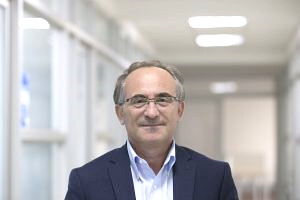FEATURED REPORTSView More
International Association for Peace and Economic Development
Discussion Centers on Increasing Balkan Prosperity
Tirana, Albania—Economic experts considered ways in which economic development can be expanded throughout the Balkans.
On March 11, 2021, the Balkan region chapter of UPF held a webinar with the theme: “What Needs to Be Done to Build a Sustainable and Inclusive Economy in the Balkans?”
In this webinar, economic experts from both the Balkan region and Western Europe considered ways in which economic development can be expanded throughout the Balkans, harmonizing European Union strategies with local environment and needs.
Associate Professor Dr. Selami Xhepa from Albania, president of the European University of Tirana, pointed out that the Central European Free Trade Agreement (CEFTA) has helped growth in the Balkans, but that there are still many problems: low productivity and low level of investment. In a situation of high unemployment, only 6 percent of the existing economy can create new jobs. There is a need for a transition strategy to a new economy (to be part of the “Fourth Industrial Revolution”): There should be higher competition/fewer monopolies, fairer income distribution, digital development and transition to a greener economy. Education also needs to be improved, in order to prepare for a new economy, Dr. Xhepa said.
Professor Vjekoslav Domljan from Bosnia & Herzegovina, the rector of the Sarajevo School of Science and Technology, said that the GDP growth of 3 percent in his country is too slow – the country therefore needs to increase productivity to have a competitive economy. There is also a big economic gap between the cantons. He emphasized the need to fund research and development projects; through smart specialization in an area of production, exports can increase. Digitalization and financial reform also are needed. The diaspora, young people educated abroad, could help in developing the economy.
Skender Krasniqi from Kosovo, president of the Chamber of Doing Business in Kosovo, explained that in 1999 businesses were destroyed because of the war. Kosovo has good roads and infrastructure and natural resources, but high unemployment. There is a need to change laws in favor of domestic production and exports. He expressed hope in the new government based on a single political party.
Dr. Claude Béglé from Switzerland, an entrepreneur and the founder and president of Symbioswiss, emphasized education (cf. South Korea and Malaysia) but especially education that is more practical than theoretical. He referred to Asia and Kenya as examples of successful digitalization. Monetary and fiscal reforms are necessary, he said. There should be increased productivity not only in size but especially in smartness – and this is connected to education. Finally, he pointed out the need for political stability, governments that are accountable, the need for transparency and the need to avoid corruption – these points are fundamental if one wants to attract investors.
Myzaljen Hoxha from Albania, a researcher of economic sciences and the chairman of the Albanian chapter of the International Association for Peace and Economic Development (IAED), said that peace is fundamental for achieving economic efficiency, social justice and individual freedom. He listed several points for promoting good economic development; for example, there must be good, accountable and transparent governance to ensure trust between citizens and the state.
Chapter Reports View All Chapters

Turkey
UPF-Turkey Program Discusses UPF Vision
Istanbul, Turkey—Mr. Jacques Marion presented the UPF vision and key areas of focus.

Sweden
UPF-Sweden Program Features UPF's Principles of Peace
Stockholm, Sweden—UPF’s Principles of Peace were at the center of the third Nordic Peace Seminar.

Democratic Republic of the Congo
IAYSP-DR Congo Observes UN International Day of Peace
DR Congo—IAYSP-Democratic Republic of Congo observed UN International Day of Peace 2023 and appointed a Youth Ambassador for Peace.








